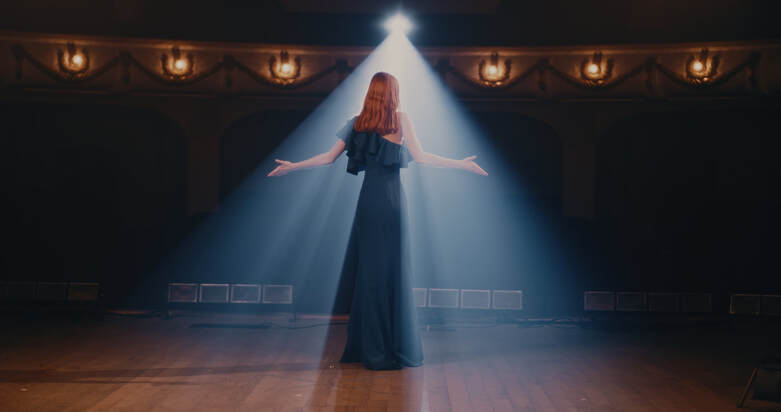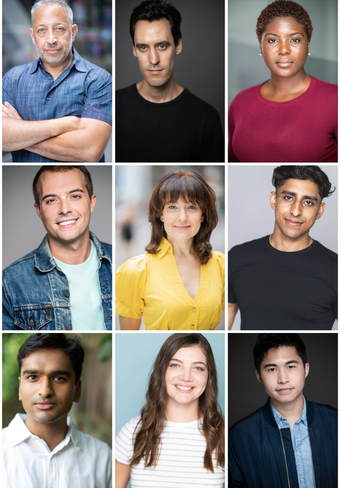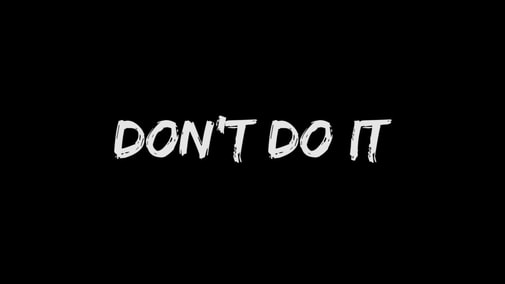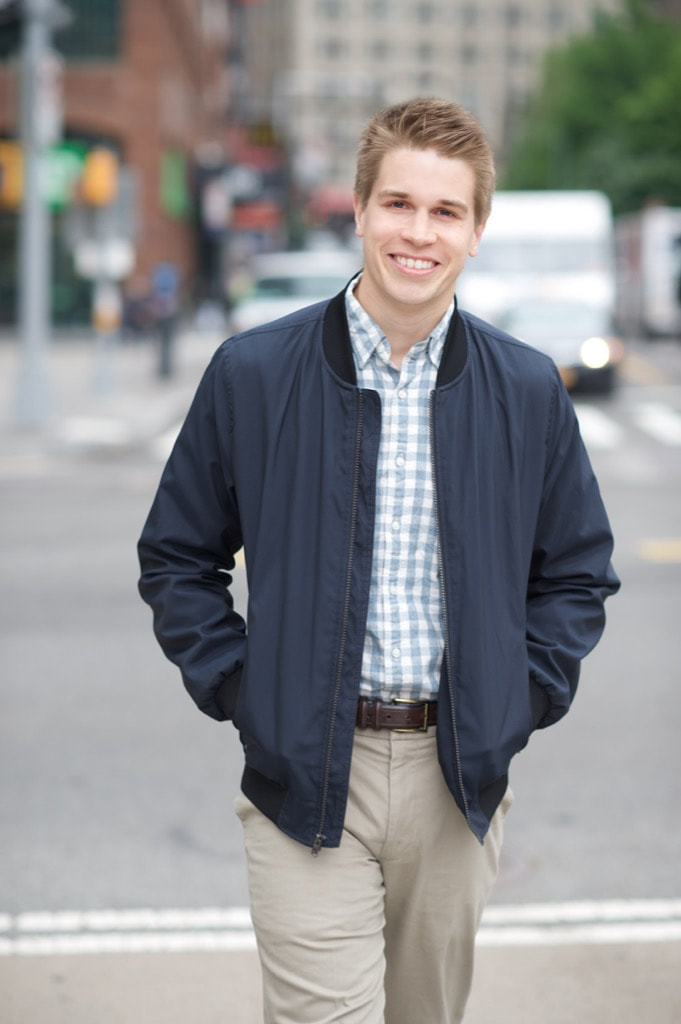|
Note: If you're trying to find auditions (rather than prepare from them), visit this page: How to Find Auditions: The Ultimate Guide.
Too many "experts" in this industry recommend over-preparing for auditions – reading and re-reading entire scripts, doing deep character research, working out every single beat for every single line, etc. But what if you don't enjoy all that or have time for it? I believe forcing yourself to do it anyway is one of the fastest ways to burnout and overwhelm. That's why if you're in this for the long haul, I think you should look for shortcuts on how to prepare for an audition to save time AND improve your chances of landing the role. That's what this guide is all about. How to Prepare for an Audition
|
|
What Should You NOT Do Before an Audition?
Now that you know what to do, here are some things NOT to do before an audition:
- Don't over-prepare. Spending countless hours researching, creating an entire world for the character, reading and re-reading the full-length script, and endlessly prepping is a surefire way to burn you out and make auditioning less enjoyable. The actors who audition best LOVE auditioning. If it feels like a chore, you'll start avoiding auditions and stressing out unnecessarily over them. You can safely ignore advice that tells you to read and reread everything. Sure it can help, but at the end of the day, if it's getting in the way of you going to auditions consistently, it's not worth it.
- Don't improvise your lines. Some people recommend going off-book when rehearsing, but I generally discourage it. It can confuse you and if you don't stick to your lines exactly as they're written in the audition (unless otherwise instructed), you'll annoy the casting director. Sticking to the lines word for word is critical in auditions!
- Don't try to make the right choice. Unless you have access to the complete script and know all the details surrounding the audition sides, you should just make whatever choices you think make sense. Don't worry about playing the character as you think the casting director would want. It's easier and better to play the character as if you yourself were the one in the scene. How would you respond? Don't worry about how the character would respond unless you have the exact information to figure that out. If you make the wrong choice, the casting director will give you direction in the audition and simply ask you to do it again.
- Don't think debilitating thoughts. Don't think about how much money you could make, how much confidence you could get, or how good you'll look in front of your friends/peers if you get booked. Of course, avoiding those thoughts is easier said than done, but I have a unique shortcut you can use to easily push those thoughts away, and I call it "focusing on your Pride Words." Read this article to learn how to get WAY more focused and ease audition nerves quickly by focusing on your Pride Words.
- Avoid dairy, coffee, or spicy foods for at least 2 hours beforehand. These types of foods can affect your voice, which can be slightly problematic for regular auditions, and especially problematic for musicals if you'll be singing.
What to Wear to an Audition
Should you wear the costume exactly as you think the character would? Are there certain colors that work better? In this section, we'll go over exactly what you should wear at your next audition.
It's usually safest to wear something that hints at the character but isn't what the character would wear exactly. But who says you need to play it safe? Oftentimes actors who make bold choices stand out, and if the worst that can happen is them not selecting you, I usually recommend making a bold choice.
If you have the exact outfit you think the character would wear, there is no major reason not to wear it. You're generally not going to offend the casting director – in fact many enjoy a little dress-up by the actors they see.
It can also be a conversation started – you can joke by saying, "Normally I come to auditions dressed in a way to just hint at the character, but today I decided to have some fun. I hope that's OK!"
The casting director will laugh, and they'll probably remember you.
Now of course, if you don't have the exact costume or want to play it safe, you should hint at the character by wearing something more professional or more casual depending on how that type of character would usually dress.
For instance, if you're auditioning for a police officer role, wearing dress pants and a dress shirt would be better than wearing jeans and a t-shirt. On the other hand, if you're auditioning for a gang member, you might want to wear darker colors and a hoody – don't show up wearing a suit!
That being said, here are a few general tips for clothing on how to prepare for an audition:
Want to go deeper on what to wear? Check out our free guide: What to Wear on Camera: The Ultimate Guide
It's usually safest to wear something that hints at the character but isn't what the character would wear exactly. But who says you need to play it safe? Oftentimes actors who make bold choices stand out, and if the worst that can happen is them not selecting you, I usually recommend making a bold choice.
If you have the exact outfit you think the character would wear, there is no major reason not to wear it. You're generally not going to offend the casting director – in fact many enjoy a little dress-up by the actors they see.
It can also be a conversation started – you can joke by saying, "Normally I come to auditions dressed in a way to just hint at the character, but today I decided to have some fun. I hope that's OK!"
The casting director will laugh, and they'll probably remember you.
Now of course, if you don't have the exact costume or want to play it safe, you should hint at the character by wearing something more professional or more casual depending on how that type of character would usually dress.
For instance, if you're auditioning for a police officer role, wearing dress pants and a dress shirt would be better than wearing jeans and a t-shirt. On the other hand, if you're auditioning for a gang member, you might want to wear darker colors and a hoody – don't show up wearing a suit!
That being said, here are a few general tips for clothing on how to prepare for an audition:
- Avoid wearing flat white or black. Colors or gray tones are look better under bright lights than white or black, and if they're taping your audition, those colors show up better on camera.
- Stick to solid colors. Patterns are distracting and also don't show up well on camera.
- Avoid jewelry if possible because it can draw attention away from your performance.
- Cover up any tattoos with your clothes so the casting director doesn't notice them (unless you think they'll add to the character).
- Make sure to wear clothes that fit well, unless the character would wear really baggy clothes.
- Wear closed-toe shoes that are comfortable. Flip flops are unprofessional and since you might have to stand in line for a while, where something comfortable.
- What is the best color to wear to an audition? The best colors are rich, dark colors that don't draw too much attention to themselves. Avoid hot tones like orange, red, and yellow because they're too bright and difficult to look at. It's much better to stick to cooler tones like blue, gray, purple, brown, and green.
- Show up exactly the way you look in the headshot you submitted. This is a critical point most actors miss – make sure your hairstyle and makeup are as close as possible to the headshot you originally sent in. If you show up looking different, you'll almost never be chosen. They invited you to the audition because they loved the way you looked in your headshot!
Want to go deeper on what to wear? Check out our free guide: What to Wear on Camera: The Ultimate Guide
What Should I Expect From My First Audition?
Here are a few final things to keep in mind as you get ready for your first audition:
- Almost every other actor there will look like you. The casting director picked you for a reason – they have a specific look in mind that they want for the character, so all the other actors there will probably look just like that vision too! Don't get intimidated. Just remember that no one has your personality or brand.
- Don't worry if you don't have an agent. Most actors don't, and the fact that you got to the audition room without one means that this particular casting director doesn't care that you have no agent, so no sweat! Want to learn how to get an agent? Read this.
- They will probably ask you questions about yourself and your availability. Don't feel intimidated if they ask about who you are as a person or what you like to do, or even why you're interested in the role. Just answer honestly. They usually ask because they want to know whether you did any research in advance.
- You'll need to check in and be ready for the audition at any time. Sometimes you might have to wait for a few hours, other times they'll see you right away. But be sure to check in upon arrival so they know you're there.
- Keep in mind that there are usually 3-5 people in the audition room. The casting director, the camera operator, the reader (person who will be reading your opposing lines), the director (sometimes), and the producer (sometimes). Want to learn more key industry terms? Check out this page.
- Know that sometimes they might hand you an entirely new script if they see you perform and feel you could be a better fit as a different character. If that's the case, don't panic, just do your best. This is called a "cold read" and they know you didn't prep those new lines in advance, so they're typically more lenient!
- Remember that the audition could take way longer than expected. Make sure your schedule is clear so you're not stressing about being late to another appointment.
- Expect to be given notes and asked to do it a different way. This is common and means they're interested in you. They want you to do an amazing job so they can hire you for the part! The reason they might give you notes is simply to see how you take direction (not to insinuate that you made the wrong choice).
- Don't expect a decision right away. Sometimes it can take a couple weeks to hear back after your audition. It's generally not a good idea to follow up more than once about a week after the audition if you haven't heard back. Too many followups are considered annoying and unprofessional.
- After the audition, move on. Get together with a friend or watch a movie, or start practicing for your next audition. What's done is done, and if you replay the audition too many times in your head it can cause stress and overwhelm, which will make you resent the process and start avoiding auditions altogether.
In Summary
Many so-called "experts" in this industry recommend over-preparing and trying to do things perfectly for every audition. But the problem with that is it can cause you to start dreading auditions.
I like to take a different approach. I call it thinking "outside the industry."
The fact is, you're in this career for a long time. Unless you do something truly terrible (like saying horribly offensive things to the casting director or physically attacking someone at the audition), they probably won't remember you if you mess up.
I'd much rather you have fun auditioning! Do the basic prep work necessary to do a good job, but don't stress out about it. At the end of the day, the more you enjoy the process, the more gigs you'll book and the faster your career will grow.
I like to take a different approach. I call it thinking "outside the industry."
The fact is, you're in this career for a long time. Unless you do something truly terrible (like saying horribly offensive things to the casting director or physically attacking someone at the audition), they probably won't remember you if you mess up.
I'd much rather you have fun auditioning! Do the basic prep work necessary to do a good job, but don't stress out about it. At the end of the day, the more you enjoy the process, the more gigs you'll book and the faster your career will grow.
Enjoyed this article?
Book more work by thinking "Outside the Industry."
As someone who has worked with people in thousands of industries (through my headshot business), I've been able to take growth strategies that work for businesses and apply them directly to actors – to help them grow their careers faster than most would think possible (examples: one of my clients landed his first-ever Broadway role in just 4 weeks of working with me, and a brand-new actress signed with a high-level agent in just six weeks of working with me).
I'd like to invite you to my free insider newsletter where I share my best material, including:
Download my free Actor's Toolkit to get started and you'll hear from me a few times a week with unique "outside the industry" strategies. I promise they'll help you build a career you're truly proud of.
I'd like to invite you to my free insider newsletter where I share my best material, including:
- How to network easily and authentically with casting directors – even if you hate self-promotion.
- How to find your Type and Brand in just 18 minutes (it doesn't require awkwardly asking lots of random people for feedback)
- How to find a hardworking and reliable agent – even if you don't have a strong resume or reel
- And much more...
Download my free Actor's Toolkit to get started and you'll hear from me a few times a week with unique "outside the industry" strategies. I promise they'll help you build a career you're truly proud of.
|
Martin Bentsen (author of this guide) is an actor marketing coach who uses “outside the industry” thinking to help actors book more work. He’s helped over 6,000 actors with their careers and actor headshots since 2009 and his photography studio City Headshots is ranked #1 on Yelp. He’s spoken at NYU, The New England Theater Conference, The Actor’s Green Room, and other venues. Want to book more acting work by thinking different? Start with his free Actor’s Toolkit to create new opportunities right away, or visit his website at www.martinbentsen.com. |
Further Reading:
If you enjoyed this article, you might be interested in some of these:
Comments are closed.




